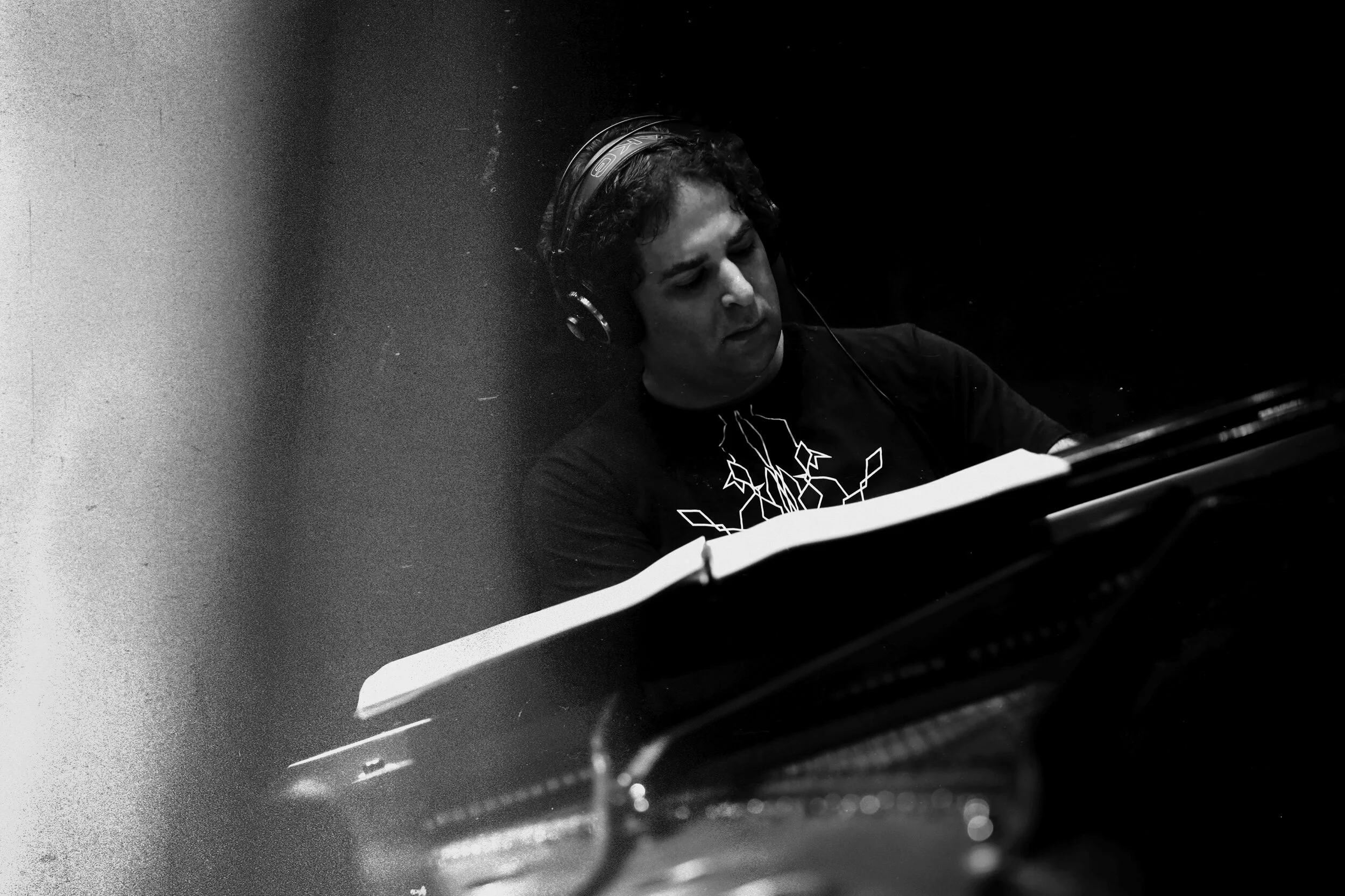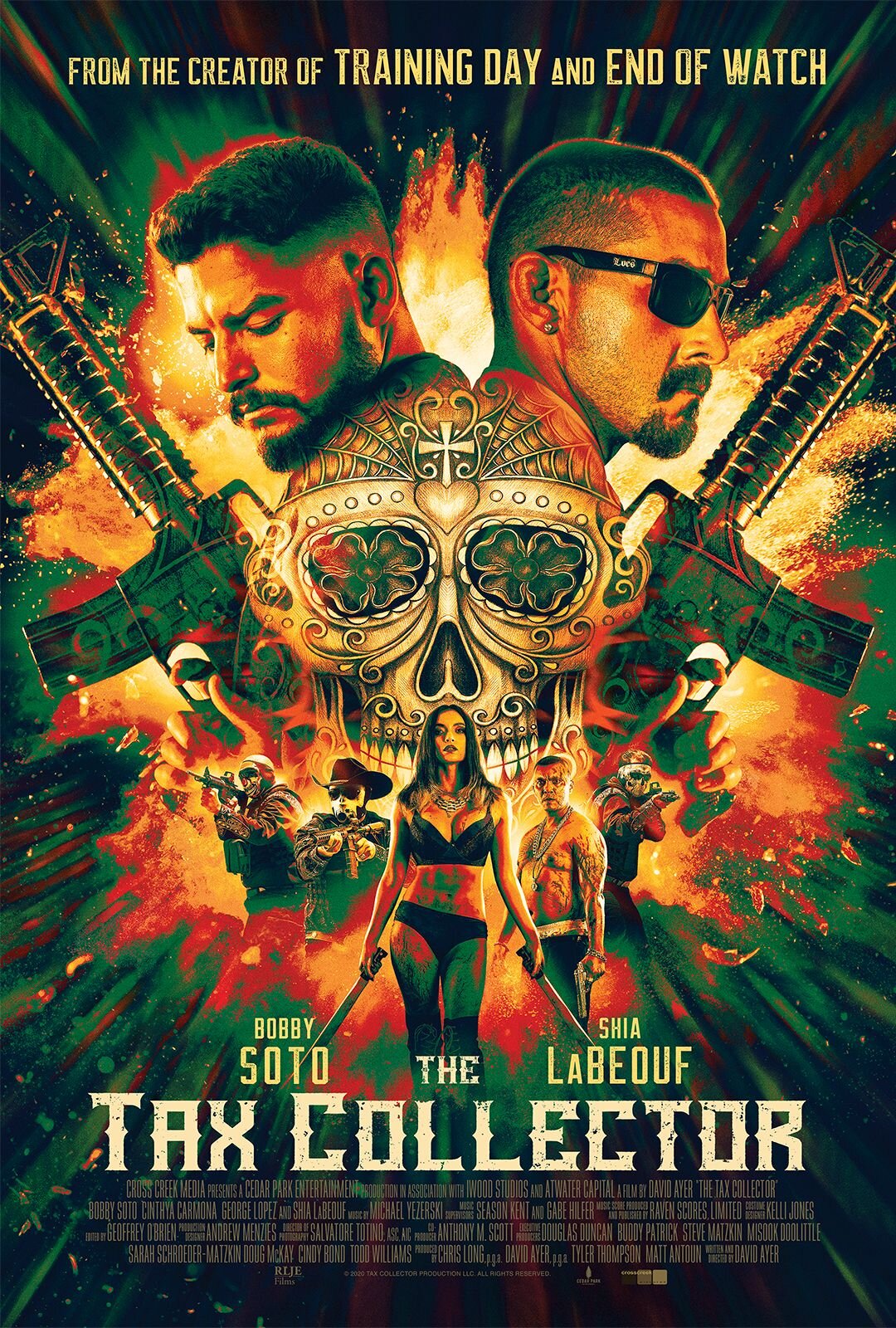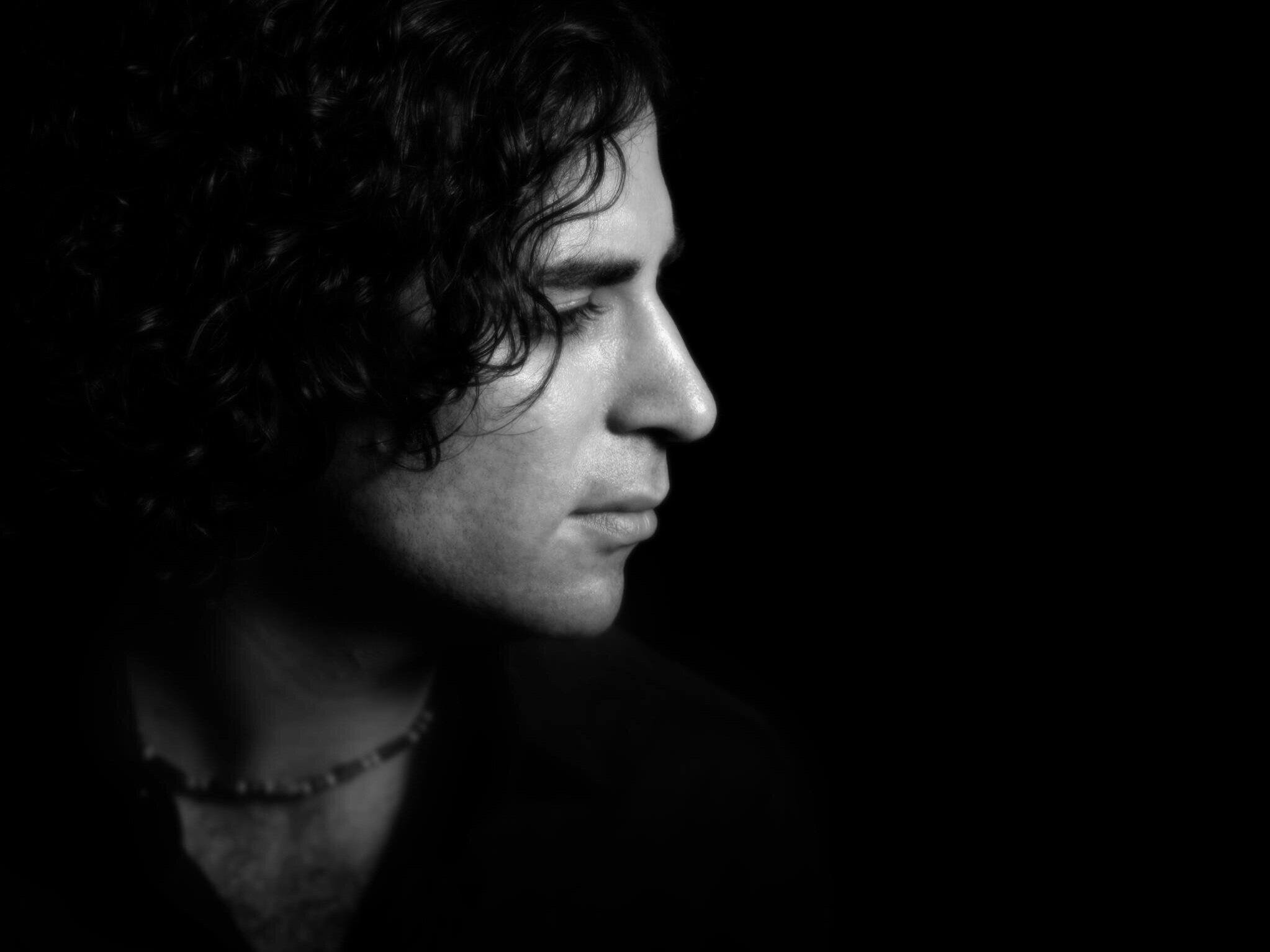'The Tax Collector' Composer Michael Yezerski on Crafting the Sound of David Ayer's Film
David Ayer’s “The Tax Collector” is a gritty Los Angeles crime drama. What differentiates the film from others of its ilk is the haunting score courtesy of Composer Michael Yezerski, which combines vocals, strings and guitars to create an emotional score that evokes shades of folk music, or even Explosions in the Sky.
Yezerski has provided music for any number of Australian projects ranging from tv to film to even advertising jingles, but he only recently began working on American productions. He provided ‘additional music’ for “Transformers: Age of Extinction” and recently scored the 2018 Sundance hit, “Blindspotting.”
“Tax Collector” director David Ayer had relied upon Academy winning composer Steven Price for his more traditional action scores for films like “Suicide Squad” and “Fury,” but opted for a more heartfelt score for “Tax Collector,” in order to echo the emotional complexity underlying the film’s characters. Ayer told Yezerski that he didn’t want “layers and layers of strings and percussion.” Although Ayer provided Yezerski with a few songs as reference, Yezerski had between two and a half and three weeks to compose a score that would accomplish what Ayer was looking for. Yezerski describes it as “seat of your pants scoring.”
Yezerski initially composed demo tracks in keeping with the sounds that Ayer had suggested, and was surprised Ayer showed him these tracks overlaid against certain dark scenes creating something of an incongruity. As he put it, “I couldn’t imagine that piece with that scene.” But ultimately, it worked. And Yezerski began to understand exactly what Ayer was looking for.
According to Yezerski, the end product “was basically a guitar melody with me humming. It’s song-like without being a song. You take that idea and then sort of explode it into the rest of the film...we wanted to create the maximum impact with the minimum number of instruments.”
In terms of what the future holds for this Director & Composer partnership, it would seem that Ayer was comfortable with Yezerski’s as a partner, as the two of them are now working on Ayer’s tv show “Deputy.”
You can watch or read our full interview with Michael Yezeraki below.
Michael Yezerski:
Thank you for having me, great to meet you.
FilmSpeak’s Will Mavity (FS from now on):
Nice to meet you as well. I guess the thing that stands out first and foremost to me about this film is based on the type of film it is I expected kind of a bwaaa score.
Michael:
Yeah, right?
FS:
And it's not that. I felt like I was listening to explosions in the sky at times.
Michael:
That's interesting. Yeah.
FS:
Tell me how you went with this sound.
Michael:
Yeah, the funny thing is, when I came on board the film, David Ayer had sent me a couple of references, and these references were not what you would expect. I can't actually remember what they were. They were a couple of songs. I remember that it was song format and it had vocals in them, but they were tender. They were heartfelt. They were almost folk song-like. I heard it and I was like, "I think I know what he means. I think I know what he wants for this film," and it's not what you'd expect. Because when the film was described to me, I'm like, "Oh," like you said, "Blams, and action, and grit, and maybe some rock and roll," or whatever it is. But no, the heart of the film is actually this soft and tender music, which relates to the character of David, and the fact that there's this through-line of the concept of family, so the score reflects that.
FS:
No, but throughout the course of the film it does kind of transition to more of a Sicario-esque, atmospheric, ominous score. So tell me a little bit about the progression, and in terms of instruments you used to go from this happy-
Michael:
Yeah, well that's sort of inevitable, in any sort of film situation you're going to have ups and downs, peaks and troughs in terms of what you need to do. Like an action sequence you can't always just score with gentle music. Sometimes you can… but it's ironic.
FS:
I want to see that now.
Michael:
Well, like Tarantino does that kind of thing.
FS:
Right.
Michael:
But I think if you look at the heart of the score, I wrote demos in response as sort of an artistic reflection on the references, and I gave something back. And when I first walked into the edit, I remember them playing this scene to me and it was like it had my demo on it. And it was like, "See, look at this, it's perfect." And I was like, "Oh, okay," I never considered it as [a perfect fit] ... But when I first heard it I'm like, "I didn't imagine that piece on this scene”. And then I immediately started to be like, "Okay, I get the film, I get what you're trying to do."
And then of course from that, it's "how do we develop that melody in a way that can also be more of an action melody, or more of a conflict melody rather than just something beautiful as well?" But the seed of that ... It's basically a guitar and vocal melody. It's me humming, and yeah, it's song-like without being a song, and you take that idea and you sort of explode it into the rest of the film.
FS:
So are you providing all of the vocals throughout?
Michael:
Well, on the score I am. I mean, obviously there's a lot of songs in the film.
FS:
There were voices in that I didn't think your vocal chords were capable of.
Michael:
Ah-ha, right. So the thing is, the idea of ‘the voice’ became something of a through-line, like a motif. If we have the main character of David, and he has this kind of soft, almost choir-like humming voice. Then we have the character of Conejo, who's the 180-degree inversion of this character, so what do I do for him? Well, I took again my voice, but I pitched it down three or four octaves and I put it through all these weird processes and things so that we were kind of going for the concept that it was like hell rising up. He was coming up through the floor basically as opposed to David who has an almost somewhat angelic. In its most stripped back sense it's angels and demons.
FS:
Oh, okay, I like that. Did you provide everything else? Are you playing the guitar? Are you doing the strings?
Michael:
No. I hire very good people. No, I wish I could play guitar. It's the one thing that I wish that I could play that I don't. It always ... I do a MIDI computer mock up of it, and I send it to my guitarist, who's an absolutely incredible player and he just brings it to life. I hear things that I was like, "Wait, did I write that? That's good man, what did you do?" He just adds the [humanity] that you need.
FS:
You mentioned that you don't remember what some of the song references that David gave you, but were there any personally that you drew from? Any film scores that you kind of wanted to take a little inspiration from for this?
Michael:
Yezerski recording in Prague, 2019
The funny thing is, not really, because there just wasn't that much time, it was really quick. We had to get this film done in about two and a half or three weeks… I mean, I'd like to say that's not normal, but that's pretty normal nowadays. It's like, come in, get it done, get the film out. And we revisited it later, but that first run of actually getting a lot of musical material was quick. It was kind of seat of your pants type scoring. It wasn't really like, "Let's sit back and consider all the references and everything." But apart from those first two references that I got, really what I knew is that I was just trying to be a little bit different in how we approached the material. We didn't want to be like classic Hollywood throw layers and layers of percussion, and layers and layers of strings, and brass, and all kinds of things like that. I know it's a cliché, but that wasn't the intention. It was basically, "How can we create maximum impact with a minimum number of instruments?" Even in the action scenes it's like, "Can I just create an action scene just by layering up 10 guitars and add nothing else?" And it was like, "Okay, almost, it's good for the first 16 bars, and then at this point we have to add drums, and we have to do a little bit more." But it was really trying to take as much of a stripped back approach as possible to try and get maximum impact.
FS:
Now, since you came so late in the game, did you have much overlap with the foley team? Or any of the sound folks? And did you have a role in the sound effects at all in the film?
Michael:
No. No, no, no. It was really sort of walking onto the mix stage and meeting them all for the first time.
FS:
Okay, well then the question is, how did you end up here? How did you come together with David and do all this?
Michael:
A good friend of mine was the music editor of the film, his name's Bryan Lawson, he's one of the top music editors in LA, and he's worked on many, many, many famous films that you will have heard of. The thing is, I guess he knew that I had in my musical repertoire the sort of sound ... Well, he had a theory that I could do the sort of sound that David was looking for I guess, because he called me and said, "Ah, I think you would be good for this because from what I've heard of your music, you have elements of what David I think has expressed." The vocals, and the guitars, and that kind of song-like scoring, I've done that before. I think that's what led me in. I wrote a couple of demos and sent them off. And like I said, the first time I walked in the theater they were in the film, which is fantastic.
FS:
It ended up, (especially knowing that you had such a short turnaround time), as a fantastic product. How would you say this expanded what you've done in the past in terms of scores to date?
Michael:
You mean in terms of musical repertoire?
FS:
Yeah.
Michael:
I guess it definitely built on ideas that I had played with before. The idea of laying multiple guitars to create textures. The idea of integrating guitars and vocals to create textures in a film score idiom rather than say a song idiom. I have a background of all kinds of film production including I've done a lot of advertising in my past, so basically I've written songs, I've written jingles, I've written all kinds of things where I've used vocals as an element, right? But I've never really done a film score where it sort of combines all of those different ideas into the one thing. And also at the same time, it's sort of trying not to be a maximal score in its construction. It tries to be as stripped back as possible, even though it's quite loud in the mix, it's like what's actually going on in the music is quite minimal.
FS:
So now that you've kind of gotten your name out there with Blindspotting and this, and you're working with David again on his TV series aren't you?
Michael:
Yeah, we did Deputy earlier this year.
FS:
So any idea what's next for you?
Michael:
Well, isn't that just the question that's sort of facing the whole industry right now?
FS:
I know.
Michael:
What's next for any of us? Or when is there a film industry? There's no doubt that there is, but it's like, "When?" It's funny, I'm like everyone else, I've had projects that we were about to go and shoot them and I was going to be the composer and suddenly it's like, "Ahh, no, we're just going to sit out the next few months in LA, we're not going to parts of America and Europe to shoot this film." I think I'm in limbo as much as everybody else, just waiting hopefully for things to come back to life.
FS:
I'm sure when people hear this though they won't have any problems looking to you for future work. Before we go, I always like to ask, single thing you are personally most impressed with yourself that you did on this project?
Michael:
Oh god. Alright, as a general rule I try not to be impressed with myself. I actually hate listening to my own music, it actually gives me the creeps. My wife will be like, "Oh, we should watch this movie's on, you did the score." I'm like, "I actually have to leave the room." I'm not the kind of person who's happy to let things go, because I'll just pour over and go, "Ah, I should've done that better." But on this particular film I think I am pretty happy with the overall ... At least some of the sound things that I was able to get. I think it was one of the first films that I've ever worked on, besides perhaps Blindspotting, where I had an idea in my head and when I listened to the final product I'm like, "That's pretty close to what I had envisioned. Because I think a lot of time, and it's sometimes deliberate and sometimes not, you go and search that idea and it sort of takes you in a different direction. I think with this one, the way I had hoped it would come together, it came together.
FS:
Are we going to be able to find your score on Spotify, iTunes before long?
Michael:
We have someone working on it. Yeah, but stay tuned, I will hopefully have something to announce soon on that one.
“The Tax Collector” is now available to rent on VOD.




